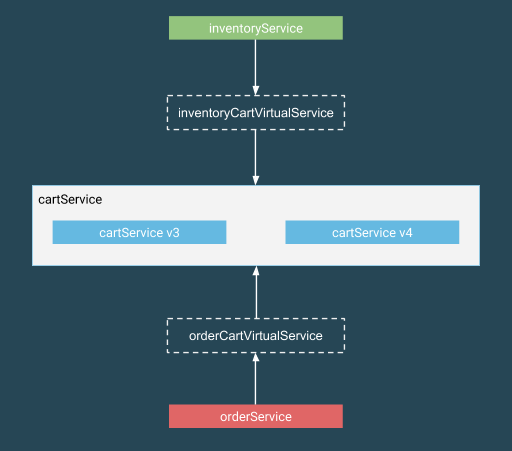Upstream Groups
An UpstreamGroup addresses an issue of how do you have multiple routes or virtual services referencing the same multiple weighted destinations where you want to change the weighting consistently for all calling routes. This is a common need for Canary deployments where you want all calling routes to forward traffic consistently across the two service versions.
For example, if I’m doing a Canary deployment of a new shopping cart service, I may want my inventory and ordering services to call the same weighted destinations consistently, AND I want the ability to update the destination weights, e.g. go from 90% v3 and 10% v4 => 50% v3 and 50% v4 without needing to know what routes are referencing my upstream destinations.

There are two steps to using an upstream group. First, you need to create an Upstream Group custom resource, and then you need to reference that Upstream Group from your one or more route actions. Let’s build on our Multiple Destination example.
Create Upstream Group
apiVersion: gloo.solo.io/v1
kind: UpstreamGroup
metadata:
name: my-service-group
namespace: gloo-system
spec:
destinations:
- destination:
upstream:
name: default-myservice-v1-8080
namespace: gloo-system
weight: 9
- destination:
upstream:
name: default-myservice-v2-8080
namespace: gloo-system
weight: 1Reference Upstream Group in your Route Actions
routes:
- matchers:
- prefix: /myservice
routeAction:
upstreamGroup:
name: my-service-group
namespace: gloo-system
- matchers:
- prefix: /some/other/path
routeAction:
upstreamGroup:
name: my-service-group
namespace: gloo-systemOnce deployed, you can update the weights in your shared Upstream Group and those changes will be picked up by all routes that referencing that upstream group instance.
